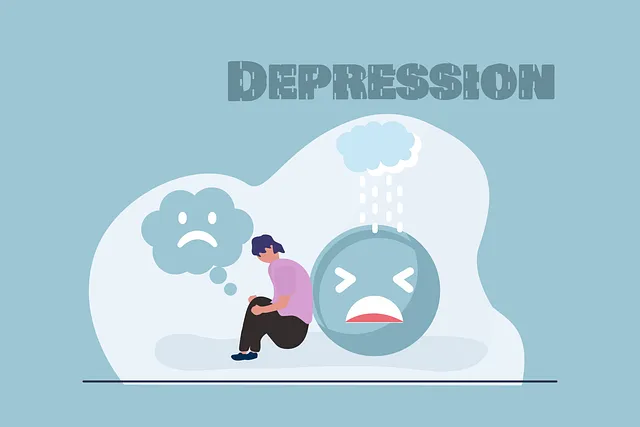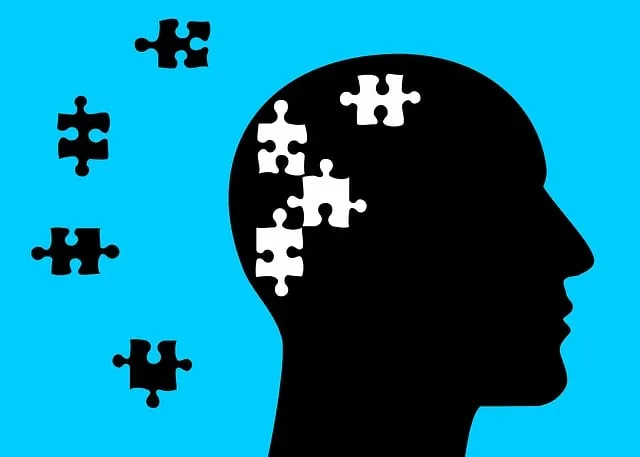The Littleton Kaiser Permanente mental health center, led by its owner, employs a comprehensive approach to depression prevention and management. Early recognition of symptoms, holistic practices like exercise, sleep, mindfulness, therapy (including CBT), support groups, and self-care for healthcare professionals are key strategies. The center's integrated methods, emphasizing resilience building, reduce risk factors, enhance well-being, and promote open mental health discussions, ultimately benefiting both individuals and the community through its Littleton Kaiser Permanente mental health center by owner-driven initiatives.
Depression is a prevalent yet profound challenge affecting individuals from all walks of life. This article offers comprehensive guidance on prevention strategies, drawing insights from the expertise of the Littleton Kaiser Permanente mental health center’s owner. We explore essential topics such as recognizing depressive signs, implementing lifestyle changes for improved well-being, and the transformative power of therapy and support groups. Additionally, we delve into building resilience through coping strategies, mindfulness techniques, and adopting healthy habits to safeguard against relapse.
- Understanding Depression: Recognizing the Signs and Symptoms
- Lifestyle Changes for Improved Mental Well-being (Litleton Kaiser Permanente mental health center by owner can offer insights into evidence-based practices)
- The Role of Therapy and Support Groups in Prevention
- Building Resilience: Coping Strategies and Mindfulness Techniques
- Healthy Habits to Boost Mood and Prevent Relapse
Understanding Depression: Recognizing the Signs and Symptoms

Depression is a common yet serious mental health condition that affects millions worldwide. Understanding depression involves recognizing its signs and symptoms, which can vary from person to person. At the Littleton Kaiser Permanente mental health center by owner, professionals emphasize the significance of early intervention for effective treatment.
Common indicators include persistent feelings of sadness or emptiness, loss of interest in activities once enjoyed, changes in appetite or sleep patterns, fatigue, difficulty concentrating, and thoughts of worthlessness or suicide. Burnout prevention is crucial, as chronic stress can contribute to depressive episodes. Self-esteem improvement through therapy or self-awareness exercises can also be beneficial. By fostering open conversations about mental health at the Littleton Kaiser Permanente center, individuals are encouraged to seek help sooner, promoting better overall well-being and resilience.
Lifestyle Changes for Improved Mental Well-being (Litleton Kaiser Permanente mental health center by owner can offer insights into evidence-based practices)

At the Littleton Kaiser Permanente mental health center by owner, experts emphasize the profound impact of lifestyle changes on preventing and managing depression. This includes adopting a balanced diet rich in fruits, vegetables, whole grains, and lean proteins—a foundation for optimal brain function and emotional stability. Regular physical activity, recommended by mental health professionals, releases endorphins that enhance mood and reduce symptoms of anxiety and depression. Additionally, prioritizing quality sleep allows the brain to rest, repair, and rejuvenate, playing a crucial role in maintaining good mental health.
The Littleton Kaiser Permanente center also highlights the importance of emotional regulation techniques such as mindfulness meditation and deep breathing exercises, which help individuals manage stress and cultivate a sense of inner calm. Integrating these practices into daily routines can significantly reduce the risk of depression, particularly when combined with evidence-based mind over matter principles that encourage positive self-talk and reframing negative thoughts. A comprehensive risk assessment for mental health professionals is also recommended to identify potential triggers and implement proactive strategies for prevention.
The Role of Therapy and Support Groups in Prevention

Depression prevention strategies often involve a multifaceted approach, and therapy plays a pivotal role in this process. At the Littleton Kaiser Permanente mental health center by owner, professionals emphasize the power of talk therapy, such as cognitive-behavioral therapy (CBT), which is widely recognized for its effectiveness in treating depression. CBT helps individuals identify and change negative thought patterns and behaviors, providing them with valuable coping mechanisms to manage symptoms before they escalate.
Support groups are another essential component of prevention strategies. These groups offer a safe and non-judgmental space where individuals can share their experiences, gain different perspectives, and build a sense of community. Social Skills Training and Mindfulness Meditation, often facilitated by mental health professionals through risk assessment, can be integral to group sessions. Such practices foster connection, promote self-awareness, and teach participants effective strategies for navigating life’s challenges, ultimately contributing to improved mental well-being and reduced risk of depression.
Building Resilience: Coping Strategies and Mindfulness Techniques

Building resilience is a key component in preventing depression, and the Littleton Kaiser Permanente mental health center by owner emphasizes this through various coping strategies and mindfulness techniques. These include stress management skills, such as regular exercise, adequate sleep, and healthy eating habits, which are foundational to maintaining emotional well-being. Additionally, healthcare professionals are encouraged to practice self-care, setting clear boundaries, and engaging in activities that bring joy and relaxation to avoid burnout, a significant risk factor for depression.
The Mental Health Policy Analysis and Advocacy plays a crucial role in promoting these strategies on a larger scale, ensuring that healthcare systems prioritize mental health awareness and implement Burnout Prevention Strategies for Healthcare Providers. By fostering an environment that supports resilience-building, these initiatives contribute to a proactive approach to depression prevention, ultimately enhancing the overall well-being of individuals within the community.
Healthy Habits to Boost Mood and Prevent Relapse

Maintaining healthy habits is a powerful tool for boosting mood and preventing relapse, as highlighted by professionals at the Littleton Kaiser Permanente mental health center. Regular exercise, for instance, releases endorphins that naturally enhance well-being. Aim for at least 30 minutes of moderate activity most days of the week to combat depressive symptoms. Similarly, prioritizing sleep hygiene ensures your mind and body rest adequately, promoting emotional resilience. Most adults require 7-9 hours of uninterrupted sleep nightly.
Incorporating mindful practices like meditation or yoga into your routine can also strengthen mental wellness. These activities encourage present-moment awareness, helping individuals manage stress more effectively. Additionally, engaging in creative outlets, such as journaling, allows for self-expression and provides a safe space to process emotions. The Littleton Kaiser Permanente mental health center advocates for mood management through these holistic empathy building strategies, ultimately guiding individuals toward improved mental wellness.
Preventing depression is a multifaceted approach, as highlighted by the expert insights from the Littleton Kaiser Permanente mental health center by owner. By understanding the signs and symptoms, adopting evidence-based lifestyle changes, engaging in therapy or support groups, building resilience through coping strategies and mindfulness, and maintaining healthy habits, individuals can effectively safeguard their mental well-being. Incorporating these strategies into daily life not only prevents depression but also promotes overall happiness and a more fulfilling life.

